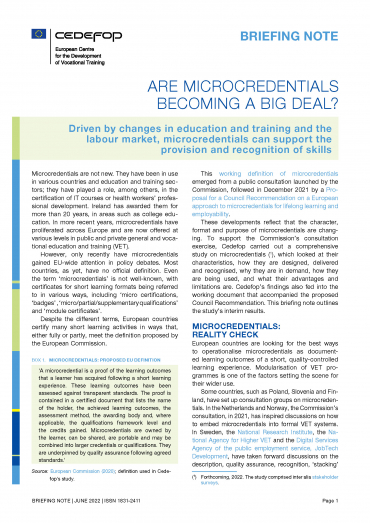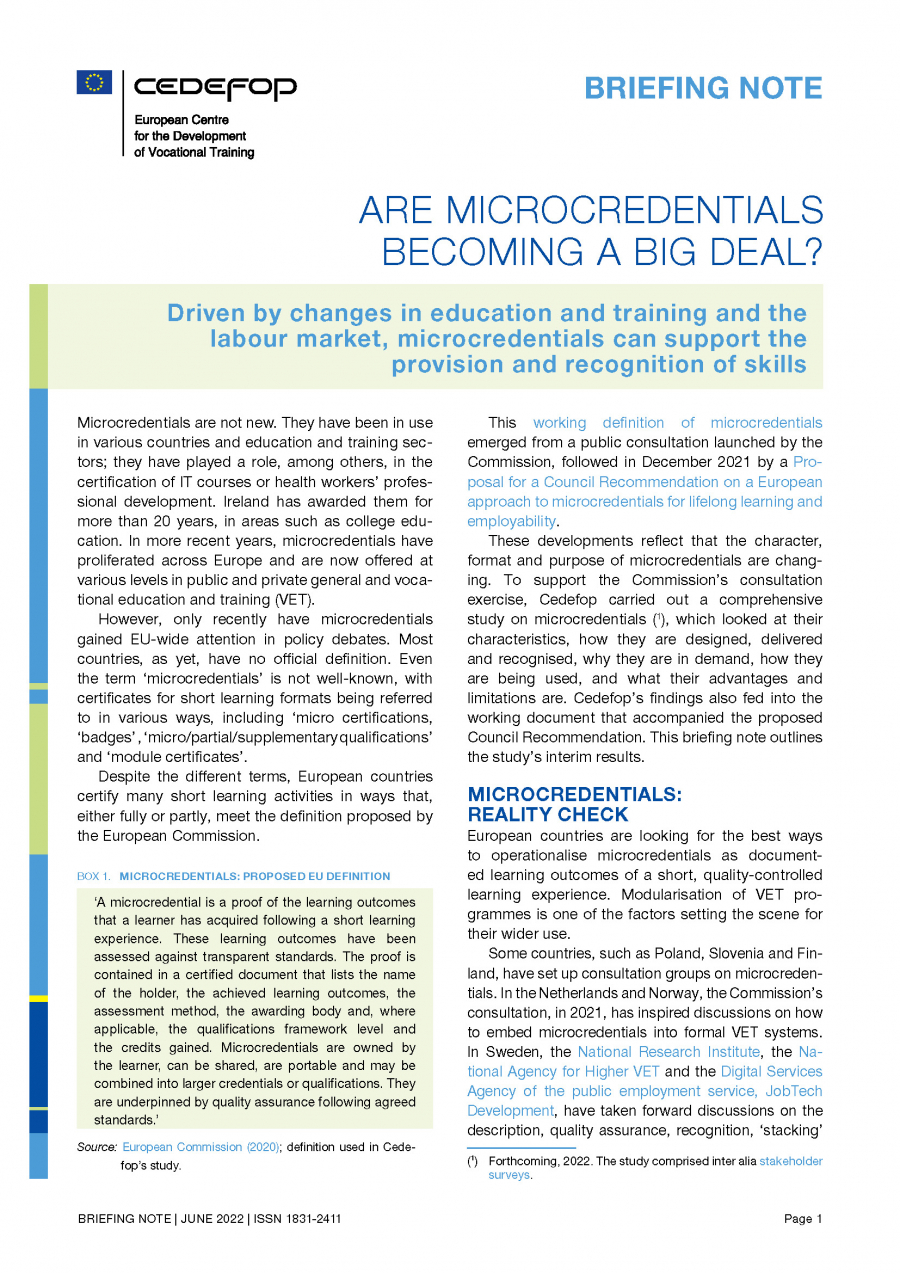Microcredentials are not new but have only recently gained EU-wide attention in policy debates. To support discussions, Cedefop has carried out a comprehensive research study to find out how they are designed, delivered and recognised.
European countries certify a wide range of short learning activities. Many are now starting to include microcredentials in their national qualification registers. Others run policy initiatives or projects to test or integrate them into their education and training systems or qualification frameworks. Modularised vocational education and training programmes set the scene for a wider use of microcredentials. Digitalisation of European economies, accelerated by the COVID-19 pandemic, is also driving interest in them.
Microcredentials are issued by public and private providers, including large companies and online learning platforms. Many sectors providing generic programmes and qualifications also offer microcredentials, e.g. manufacturing, engineering, ICT and in-service sectors such as health and law.
Microcredentials are largely seen as complementary to the traditional education and training systems, which are sometimes too slow to respond to the rapid labour market changes. In this respect, they could support the EU’s green and digital transitions, which are creating new skill needs across traditional qualification levels and sectors. The challenge now is to improve and scale them up.
Read more on microcredentials in our latest briefing note.


